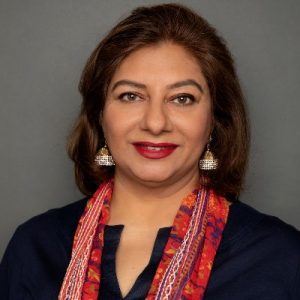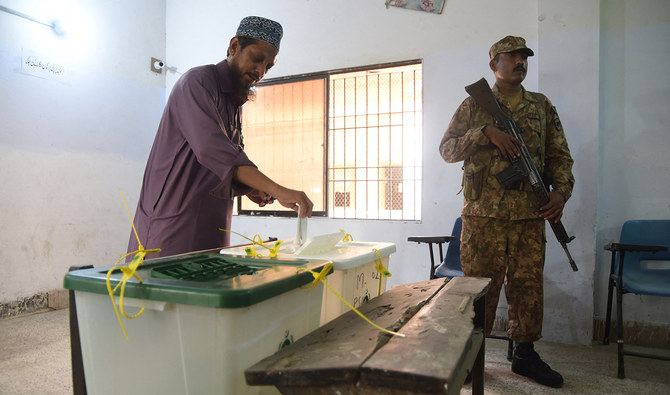This article is part of Dissent Today’s special series on Pakistan’s general elections. Follow the series here.
As Pakistan prepares for its general elections, the stage is set not only for a political showdown but also for a test of its democratic resilience. The omnipresent influence of the military establishment in the political arena casts a long shadow on the credibility of the electoral process. Coupled with the strategic maneuverings of political players like Imran Khan’s Pakistan Tehreek-e-Insad (PTI), Nawaz Sharif’s Pakistan Muslim League – N (PML-N), and Bilawal Bhutto-Zardari’s Pakistan People’s Party (PPP), this paints a complex picture of Pakistan’s democratic journey.
Imran Khan, who was once favored by the military, is now trying to save his party from an imminent electoral defeat following a very public and nasty fallout between him and his benefactor generals. Like Khan, Sharif has also learned the hard way that aligning with the establishment only works in their favor. Although their alliance may be short-lived, they should make the most of it.
The Bhutto-Zardaris know when it’s best to sit out of the game and when to seize an opportunity. The rest of the players choose their positions based on their assessment of the situation. All the players are waiting to see which side the establishment leans toward in the election.
The historical interference of Pakistan’s military establishment intertwines with the political process and discourse so intricately that it seems impossible to separate them. From orchestrating coups to subtly manipulating the civilian facade, the military has mastered the art of shaping and controlling the country’s political destiny. This interference was particularly evident before the 2018 elections when Khan and his party benefited from the military’s support.
This ongoing interference is once again evident, with the aim to manipulate the outcome of the upcoming elections by undermining Khan and the PTI. However, the credibility of the elections is also in question due to the media strategy and propaganda techniques used by the PTI. It is clear that Khan knows he cannot win the elections, so his best bet is to discredit the entire process. The military establishment, by interfering with the process and targeting the PTI’s campaign, is unintentionally helping Khan.
The essence of a functional democracy lies in the integrity of its electoral process and the protection of human rights. The military’s interference in politics not only compromises freedom of expression and the independence of the judiciary, but it also restricts the democratic space by suppressing dissent. This environment not only undermines the fairness of the elections but also has broader implications for human rights, creating an atmosphere of fear and control.
Political parties should not stay silent on these issues solely because the target is a populist leader like Imran Khan. Khan has effectively used violations of constitutional rights and civil liberties to his advantage, portraying himself as a victim of the system and a crusader against undue military influence. This narrative is resonating with a significant portion of the population, particularly among the youth and urban voters.
The narrative of PTI’s persecution plays a significant role in the current political discourse. PTI supporters view the party’s challenges as a result of the establishment’s machinations, and the PTI strengthens this perception through propaganda tactics. This tactic benefits Khan by mobilizing his base and providing him with a scapegoat if the election results are unfavorable.
The PML-N also has a complex relationship with the military. Although once seen as an ally, confrontations between PML-N and the military have occurred from 2014 to 2020. In the current political landscape, PML-N seems to normalize the military’s interference in politics, which is particularly evident in the context of PTI’s persecution.
The upcoming elections are more than a routine exercise; they are a referendum on Pakistan’s democratic values and commitment to human rights.
Sharif’s approach to dealing with PTI and Khan walks a fine line between political rivalry and collusion with the establishment. This complicity perpetuates the military’s influence in politics. Although the party claims to adopt a strategy of “political pragmatism,” many of its supporters have voiced concern over this collusion and how it might affect the party’s approval ratings.
The upcoming elections are more than a routine exercise; they are a referendum on Pakistan’s democratic values and commitment to human rights. The interplay between the military’s influence, the strategies of political parties, and the public’s response will shape the country’s democratic trajectory in the years to come.
For Pakistan to become a robust democracy, it is crucial that the elections are conducted fairly, transparently, and credibly, without the shadow of military influence. The role of civil society, media, and international observers in safeguarding the integrity of the electoral process cannot be underestimated. As Pakistan stands at this democratic crossroads, the choices made by political actors and the response of citizens will determine whether the country moves forward in democracy or regresses into controlled politics. The world watches, hoping for a Pakistan that upholds the principles of democracy and human rights, where the voice of the people is paramount.

The writer is a freelance journalist and human rights defender.

